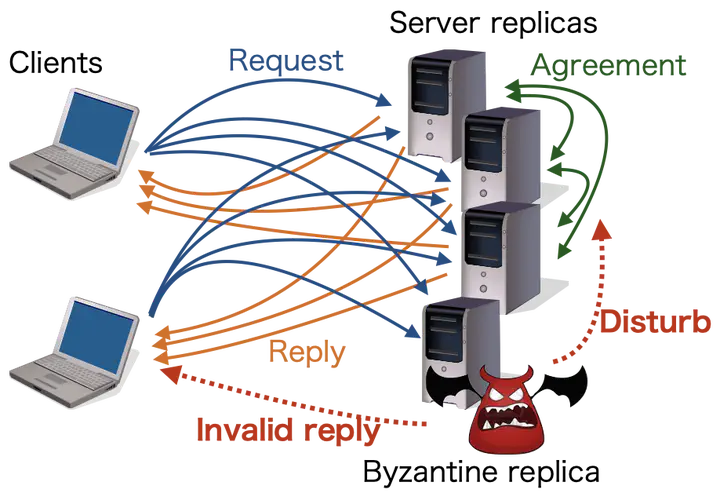Byzantine Fault-Tolerance

Abstract
A faulty node in a distributed system may behave unexpectedly. Also, if a malicious attacker takes over a node, it may interfere with the processing of other nodes. Such kinds of behavior are modeled in the research field of distributed systems as a Byzantine failure. Byzantine Fault Tolerance is known as a replication technology that allows the entire distributed system to continue providing a service even if some nodes are Byzantine. This technology is widely used as a core technology for blockchain (distributed ledger) and distributed databases. In this laboratory, we are conducting research on various technologies such as consensus algorithms to realize more effective Byzantine Fault Tolerance, especially for geo-wide replication utilizing public cloud services.
Keywords
Byzantine faults, replication, cloud, consensus, blockchain
Publications
- T. Chiba, R. Ohmura and J. Nakamura: “A State Transfer Method That Adapts to Network Bandwidth Variations in Geographic State Machine Replication”, Proceedings of the 9th International Symposium on Computing and Networking (CANDAR), pp. 88–94 (2021).
- S. Numakura, J. Nakamura and R. Ohmura: “Evaluation and Ranking of Replica Deployments in Geographic State Machine Replication”, Proceedings of the 38th International Symposium on Reliable Distributed Systems Workshops (SRDSW), pp. 37–42 (2019).
- J. Nakamura, T. Araragi, S. Masuyama and T. Masuzawa: “Efficient Randomized Byzantine Fault-Tolerant Replication based on Special Valued Coin Tossing”, IEICE Transactions on Information and Systems, E97-D, 2, pp. 231–244 (2014).